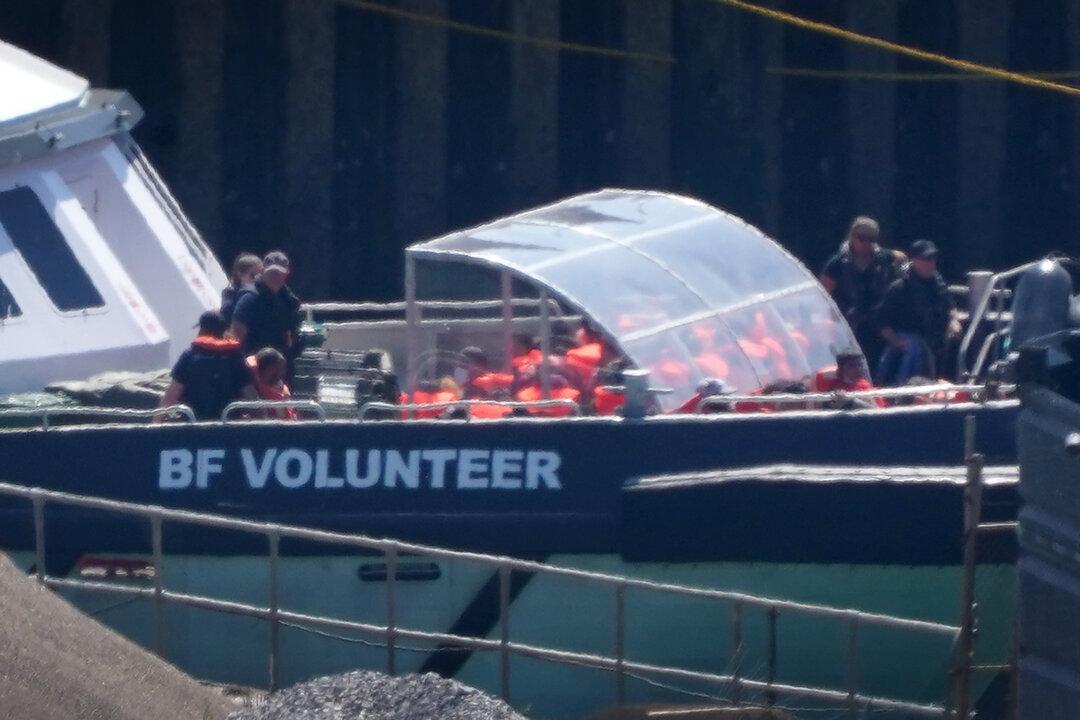More than 1,000 illegal immigrants arrived in the UK after crossing the English Channel in two days, taking the provisional total for the year so far to over 12,500.
A total of 384 people were detected on Saturday and 686 on Friday—the new highest daily total this year, according to Home Office figures.





